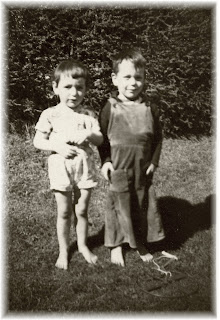 |
| The Mollers: A collection of strong legs and strong feet! |
Perhaps the most frequent request for assistance I receive is from people suffering from some kind of foot or ankle pain. These are for injuries like neuroma, sesamoiditis, toe pain including hallux rigidus, plantar fasciitis, stress fractures, reflex sympathetic dystrophy syndrome and Achilles pain.
What you may have noticed when reading the list of medical conditions is the heavy wording such as "reflex sympathetic dystrophy syndrome". I immediately have a problem when I see these heavy pieces of professional jargon. The problem is that what often comes with the big words are complex and costly treatments that may fail to see the wood for the trees. Sometimes the solutions are ridiculously simple, like throwing away those expensive sports socks!
These drastic and costly treatments are often unpleasant, uncomfortable, often with unpleasant side-effects and some are one-way streets with no turning back once entered.
For example; that quick-fix cortisone injection into the ankle may result in a catastrophic tendon rupture several months later.
Regardless of your foot problems, there are some simple things you can and probably should try before escalating to more costly and invasive treatments:
Have a daily foot bath
Get an oval plastic bucket that your feet can sit into comfortably, fill it with tepid water and add half to one cup of Epsom Salts (magnesium sulphate). Soak the legs until the water is about blood temperature (about half an hour). The best time to do this is when the feet are achy such as first thing in the morning or after a long day on your feet. It can also be a wonderful prelude to an exercise session.
Fit a pair of Formthotics Shock Stop Inner soles
These are heat moulded to fit the contours of your feet, while not restricting natural foot function. You might have to search around for them. (I have them available for about $55/pair). I have these in all my shoes and just would not be without them nowadays.
Wear thin socks
 |
| Lorraine and Gary Moller Barefoot for most of our lives. Love the fashion! |
Thick sports or tramping socks can prevent the circulation of blood to the sole of the foot, especially when combined with tight shoes and/or overly soft innersoles (innersoles should be quite hard - not spongy). Conditions associated with thick socks and tight shoes include heel pain, forefoot pain, sesamoiditis and neuroma.
Get on the internet and Google search for "How to lace a running shoe" where you will find excellent illustrations of how to lace shoes without restricting the circulation to the feet.
Get your feet massaged
There is nothing like a firm and loving massage of the feet after a long soak in a tepid Epsom Salts foot bath! Have this done once a week, including the calf and shins.
Get your toes pulled
Toe joints are like any other joint: Designed for movement. If they were not, they would be rigid. Toe pain is often the result of lack of movement and the toes being squashed into restrictive shoes.
Google search the internet for "Gary Moller Youtube toe" and you will see an instructional video about how to mobilise sore toe joints.
Get about barefoot
Use your feet as intended - without footwear. Walk on a sandy beach, on a grassy field and get about barefoot around the house.
Are your feet turning to stone?
 |
| Secondary school. Barefoot other than one boy and the teacher. |
Too much calcium is present in the circulation of 80% of the people I test while magnesium is deficient. When there is an imbalance between calcium and magnesium, the excess calcium will tend to precipitate into the soft tissues, including the joints. This is the process that leads to osteoarthritis and hardening of the arteries (arteriosclerosis). The earliest signs of this calcification and loss of circulation is felt in the feet and sometimes the fingers. Reducing calcium in the diet, while increasing magnesium intake can do wonders over the long term for foot health.
Is your medication hurting your feet?
Many medications, such as those to reduce blood pressure and cholesterol, may be the cause of your foot pain. If you think this may be a possibility, please talk to your doctor. Do not hesitate to seek a second opinion.
_______________________________________
No comments:
Post a Comment